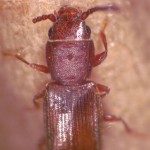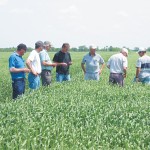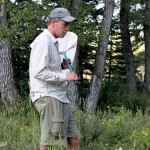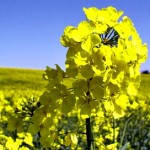Reading Time: 2 minutes Using fumigants for grain beetle control in stored grain has become more complex, says a provincial crop specialist. “Obtaining the fumigant, whether Phostoxin, Gastoxin or Weevilcide, is only half the job, as requirements for application and record-keeping have changed,” said Harry Brook. “Products containing phosphine are highly toxic and rules have been recently updated to […] Read more

Know the rules before using phosphine fumigants
Products such as Phostoxin, Gastoxin or Weevilcide are highly toxic and there are easier ways to deal with grain beetles

IPM: It’s all about combining pest management tools
The multi-pronged approach known as Integrated Pest Management can boost yields while reducing costs
Reading Time: 3 minutes While Integrated Pest Management (IPM) has become a catchphrase in agriculture today, there can be confusion as to what it actually is. “While the mechanics of the concept are discussed at workshops and lectures, many producers still don’t understand exactly what IPM is,” said Dustin Morton, a commercial horticulture specialist with the Alberta Ag-Info Centre […] Read more

Wild pollinators earn their keep on the farm
Wild pollinators may boost yields and help crops mature more uniformly, and also are a natural source of pest protection
Reading Time: 3 minutes It’s crop-planning season and that means it’s a good time for making plans to create a wild pollinator habitat near your crops. Having a strong pollinator population can offer a benefit to crops, said Mark Wonneck, an ecologist at Agriculture and Agri-Food Canada in Calgary. Bees are an important part of both alfalfa production and […] Read more

Crop insect forecast maps for 2015
Alberta Insect Pest Monitoring Network wants you to know what to watch for this upcoming crop year
Reading Time: < 1 minute The Alberta Insect Pest Monitoring Network has prepared its insect forecast maps for 2015. Among its usual suspects are names you’re likely familiar with. The links provided below include individual forecast maps for each insect (click on each insect name for a link to its page): Bertha armyworm Grasshopper Wheat midge Cabbage seedpod weevil Pea leaf weevil Wheat […] Read more

Bug forecast maps online
Reading Time: < 1 minute The first two insect forecasting maps are online, and the rest are due out in January. The wheat midge survey found none of the pests in the Peace region — a complete reversal of the previous year. Central Alberta has some hot spots, while southern Alberta has low numbers save for some irrigated fields in the […] Read more

Expert: Neonics are an issue — and also an easy target
Reading Time: 2 minutes Why are neonicotinoids attracting so much attention? The controversy around neonicotinoids is a global one. There are places where neonicotinoids are associated with bee kills and there are places where they are not. The science around neonics and their effects on bees has some inconsistent elements. There hasn’t been any strong colony-level field tests, for […] Read more

Neonics ban results in bug damage to crops
Rapeseed crops show damage four weeks after planting
Reading Time: < 1 minute Reuters – Rapeseed crops in Germany are suffering unusually high levels of insect damage this autumn following the European Union’s ban on neonics, says the German farming association DBV. Some farmers may suffer lower yields in the upcoming 2015 rapeseed harvest, it said. The EU has decided to restrict neonicotinoids which have been linked to […] Read more

A better way to beat your bug troubles
Integrated pest management allows beneficial bugs to prosper
Reading Time: 2 minutes Prevention — not eradication — is the trick to managing pest outbreaks in crops, says a B.C. government entomologist. “In integrated pest management, pest suppression is truly the goal,” Tracey Hueppelsheuser said at a workshop in late July. “The end goal is to limit pest outbreaks and impacts — not completely remove them, but limit […] Read more

Check the bertha map, and if it looks like an alligator, leave it
Reading Time: < 1 minute In his weekly Call of the Land interview, Alberta Agriculture pest specialist Scott Meers says there is a high risk of bertha armyworm infestation in the Lacombe/Stettler area and moderate risk elsewhere. He suggests checking the bertha trap map and zooming in to check the risk in your area. Meers says there are some reports of wheat […] Read more

Weekly Alberta insect report — a few bertha hot spots
Reading Time: < 1 minute In his weekly Call of the Land broadcast, Alberta Agriculture insect management specialist Scott Meers says bertha armyworm levels are fairly low across the province with the exception of some hot spots, with the highest numbers in a trap east of Lacombe and another west of Stettler. Meers says there have been reports of skippers, mostly […] Read more

